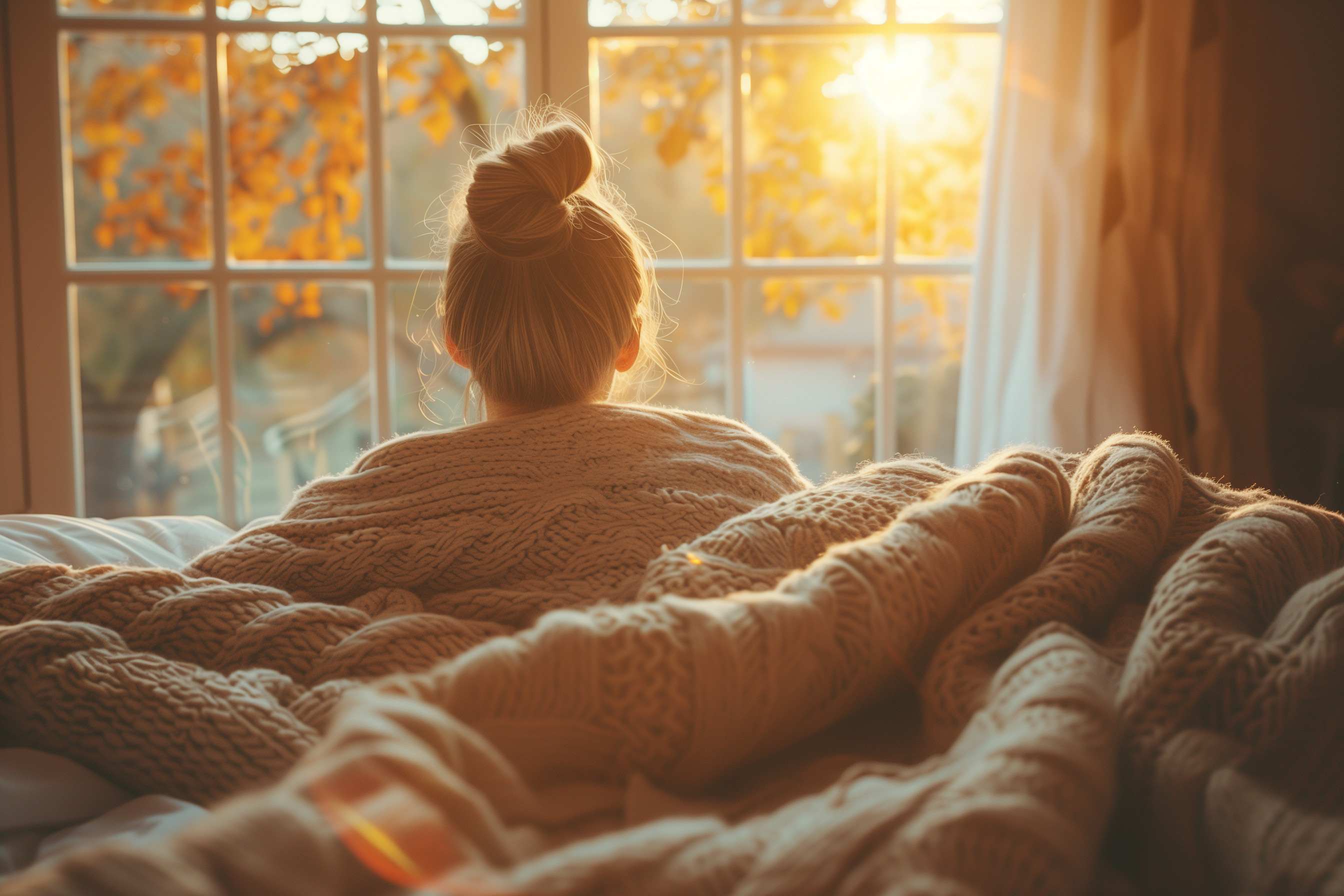Every year, people rejoice at having an "extra hour" of sleep when the clocks turn back in late November, but if you have a chronic illness (or pets or kids), that hour doesn't feel like a gift, it’s as if your body has been thrown off a cliff.
I am not being melodramatic; that one little hour really does throw a wrench into everything for people with chronic conditions. To a healthy person, it’s just a minor little tweak; to those of us with illnesses, though, it can absolutely send your symptoms, your medication timing, your sleep patterns, your moods, and your pain totally off-kilter. If you have been feeling worse than usual since early November and can’t figure out why, it may well be this.
Your body will remember, even if you don’t want it to.
Let me explain what actually is happening in your body when daylight saving time ends, because understanding makes you feel less like you are losing your mind.
The Light Thing is Real
Our bodies are wired to operate on circadian rhythms—internal clocks that react to the light and darkness. And when it starts getting dark at 4:30 in the afternoon outside, signals get crossed in your brain about what time it really is. If you have fibromyalgia, lupus, chronic fatigue syndrome, or really any ongoing condition, that confusion translates into:
- Fatigue tends to arrive in the late afternoon and may linger.
- There may be failure to sleep, even when very tired, or disruption of sleep patterns throughout the night generally.
- Brain fog is worse than usual; mornings where it's hard to function.
It may take days, sometimes even weeks, for the body to adjust to that one-hour shift. The problem is: when you are chronically ill, you don’t have that buffer that would allow you simply to "power through" a few tough days while your system re-calibrates. Those rough days start piling up and trigger flares.
Your Medication Schedule Gets Weird
So, for those of us taking medicines at certain times and most of us do the time change creates this subtle yet significant disruption. You’re used to taking the medicine at one particular internal clock time, and suddenly that’s off by an hour.
This absolutely includes pain medications, sleep aids, blood sugar management drugs, and anything hormone or steroid-based. You feel symptoms flare or that your usual balance is off, even though you are technically still taking everything "on schedule." Your body knows something is different, even if your clock says otherwise.
It does more than affect one’s mood.
It’s not about feeling a little down; this is indeed a real physiological reaction owing to the lack of light, and chronically ill persons are more susceptible than anyone else. Well, less light means more depression and anxiety, inviting in deteriorating fatigue, extreme joint pains, and increased social withdrawal. Really, there’s just a well-documented connection between how much light you are getting and inflammation and your mental health—that when you get less light, your inflammation can actually go up, which means your whole system takes a hit, not just your mood.
When Eating Gets Complicated
Most of us are on pretty strict eating schedules for blood sugar stability, or nausea management, or digestive issues dependent upon food at certain times of the day or night. This time change just throws all that off. So you’re eating at times when your body actually feels it’s too early or too late.
- You feel uncomfortable digestion-wise.
- You forget the doses of medication taken with food since the eating schedule no longer matches up.
- And when appetite and clock are not in sync, you always seem to catch up though you are doing everything that you’re supposed to be doing.
The mental load is exhausting.
It already takes so much mental bandwidth to live with chronic illness—you’re managing your pacing, tracking your symptoms, coordinating your meds, planning around doctors’ appointments, budgeting your energy, anticipating flares. It’s exhausting just to exist in a chronically ill body. Add in a seasonal time shift, and even the best-laid routines can start to feel like they are unraveling.
The worst part is that it’s so invisible: everyone else is posting about cozy fall evenings and loving the early darkness, and you’re just trying desperately to keep your system stable enough to function.
Things That Might Actually Help
I’m not able to fix daylight saving time for you—trust me, I would if I could. Here are some strategies that tend to help soften the impact:
- Get outside in the morning if at all possible. Even 5 to 10 minutes of natural light first thing in the day helps reset the circadian rhythm. If it isn’t possible to go outside, open your blinds immediately upon waking. That’s when your body needs those light cues most of all.
- Don’t try to switch cold turkey, transition gradually. Whenever possible, start adjusting your sleep and medication schedule 15–30 minutes for several days before the time change, and continue for several days after the time change. It is easier on your system than trying to jump an entire hour right away.
- Don’t let hydration and food slip. When routines get thrown off, basic self-care usually falls by the wayside. Keep your Take Your Meds tumbler full and visible. You can also prep easy meals or snacks for when you have zero energy to cook.
- Get your comfort items at the ready. Colder, darker days tend to mean more flares and increased fatigue. Make the things that help easy to access: your Rest Day socks, heating pad, Infusion Day Blanket, favorite tea—anything that gives you a little relief.
- Stay ahead on medications. Use a One Day Pill Holder or set a few alarms to avoid missed doses during an adjustment period; even small delays in the timing of medication can affect symptom management.
- Get a light therapy lamp. It’s not just for seasonal depression, but it will actually help with circadian rhythm regulation. This can make a big difference in your energy and your overall mood for most of the day if used in the morning.
You’re not being dramatic
If you’ve felt off since the clocks changed and people are telling you it’s "just an hour," let me reassure you: you’re not overreacting. The end of daylight saving time might be trivial to the outside world, but for those of us managing chronic illness, it can genuinely feel like our bodies are in complete chaos for weeks.
This time of year calls for extra gentleness with yourself. Extra pacing. Extra rest. Maybe a few extra naps that you don’t apologize for. All of that is not only okay—it’s necessary.
But one thing to keep in mind is that your body isn’t failing you just because it can’t handle a "simple" time change the way other peoples’ bodies can. Your body is dealing with chronic illness and simultaneously trying to readjust to a huge environmental shift. That takes enormous energy—even if nobody else can see it.
Be patient with yourself. Adjust what you need to adjust. Rest when your body demands it. And remember: this adjustment period is not forever—even though it feels endless when you’re in the middle of it.




Pets & Chronic Illness: Companionship, Care, and What to Consider
Why Night Driving Gets Harder When You're Chronically Ill - Especially After the Time Change